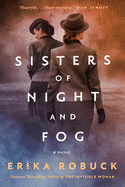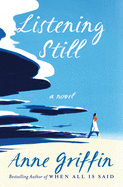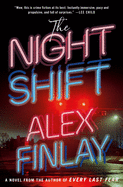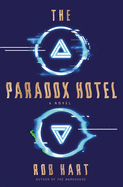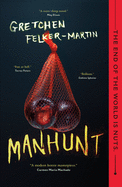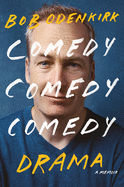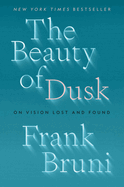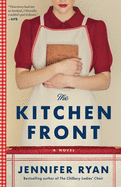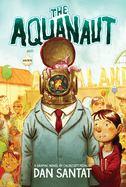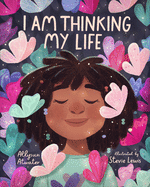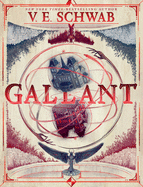 |
| (photo: David Jacobs) |
Andrea Yaryura Clark grew up in Argentina amid the political violence of the 1970s until her family moved to North America. After graduating from Georgetown University's School of Foreign Service--including a year of study at the Universidad del Salvador in Buenos Aires--and completing her MBA at York University in Toronto, she moved back to Argentina. While working as a television producer in Buenos Aires in the mid 1990s, Clark documented the experiences of the children of the "Missing." These stories, not widely known outside Argentina, inspired her debut novel, On a Night of a Thousand Stars (Grand Central Publishing). Clark lives in Brooklyn with her husband and two sons.
One thing that struck me is how so many of the characters in the book resist talking about the past. Is that something you've come across or had to learn to overcome during your own research?
In 1987, I spent a year studying at a university in Buenos Aires. The dictatorship had collapsed in December 1983, and, under the newly elected democratic government, the CONADEP commission had recently released its report, NUNCA MAS, on the fates of the Desaparecidos and other human rights violations. Yet, neither my relatives nor the students in my classes discussed the dictatorship, as if everyone wanted to move on from that period.
When I returned to live in Buenos Aires on a more permanent basis in the early 1990s, there was still silence around the issue. I generally went with the flow, not wanting to bring up a difficult and painful topic with people I cared about, knowing there would probably be disagreements. My father, who lived primarily in New York but also worked and kept an apartment in Buenos Aires, hardly ever talked about it with us, his five children.
In the mid 1990s, a friend invited me to a poetry night at a bar in the neighborhood of San Telmo. We sat at a table with a man who was around our age. My friend and I had grown up next door to each other in Vicente Lopez, a leafy suburb of the capital, and we began reminiscing about our childhoods in the 1970s. He told us that his had not been a happy one. His father had been a member of the ERP (People's Revolutionary Army--the military branch of the Communist party) who had been killed by the Triple A, a state-sponsored terrorist paramilitary organization. It was the first time I encountered someone who had been directly affected by the tumultuous events of that era, and who spoke frankly about his experience. Some days later, I mentioned the account to a family friend who was a public interest attorney, and he told me about H.I.J.O.S.--a recently formed group for the children of the Disappeared. I attended their meetings and recorded some of stories that served as the inspiration for this novel.
Once I began actually writing the novel, more time had passed, and it became easier to have discussions about the 1970s with friends and family. Those conversations, coupled with my research, allowed me to piece together a more nuanced picture of that dark chapter in Argentina's history.
Paloma and her father come from an extremely powerful family. Why did you want to centrally feature characters with such enormous privilege?
Santiago Larrea, Paloma's father, is very much a member of the Argentine elite. At the beginning of the novel, he is a well-heeled, polo-playing expat who is comfortably ensconced in the most privileged social and financial circles in New York. And yet, as the novel unfolds, we learn that there is much more to him than that.
The relationship between the sophisticated and cosmopolitan upper classes of Argentine society and the military regime was multi-layered. Some conservative elites were directly complicit and supportive of not only the coup, but also the military's mission to exterminate leftists. Others saw the coup as an unfortunate but necessary evil that was needed to bring back stability. Still others were oblivious or looked the other way. A few were swept up in actual events, engaging in activism or acts of bravery or becoming victims of the regime's terror. Santiago's character and actions complicate the notion that the conflict played out along clear dividing lines. Paloma, like her father, is conscious of belonging to this rarefied world but she is more ambivalent about her family's wealth and power, as well as her own identity. She confesses as much when her grandfather tells her that his estate will one day be hers.
How did the idea for the dual-narrative approach develop? Did it pose any special challenges?
Initially, I had focused more on the 1990s story, alluding to the 1970s only in flashbacks. However, after receiving some excellent feedback, I realized I should dive more deeply into the lives of Santiago and Valentina in the 1970s. This enabled me to bring their love story to the forefront in a way that wasn't possible in the earlier drafts. I wrote each narrative separately and when I began to alternate the chapters, I was pleased to see how well the stories aligned. The main challenge was gathering my research on the country's intricate political history and weaving it throughout the novel in a natural and comprehensible way.
There was a sense of unreality and strangeness that builds as, in the '70s, normal life more or less continues as people begin to disappear. I wonder if any of that surreal strangeness, the sense of normal life as a kind of façade, occurred to you when thinking and writing about this period.
Yes, it did, and I'm glad you brought this up. I think the surreal nature of the period probably stemmed from the violent conflict taking place every day just beneath the surface of what otherwise seems like normal daily life. A paradox like this only becomes apparent in retrospect when people are forced to reckon with what has taken place, as Paloma does in her journey. I think fiction as a medium is uniquely capable in exploring and conveying the dark and surreal atmosphere that arises from such contradictions.
In the '90s, the military dictatorship is gone, but the majority of the torturers seem to have gone unpunished and many of the disappeared have never been found. To your knowledge, how much progress has been made in pursuit of justice in present-day Argentina?
It's been almost 30 years since the dictatorship fell and there are several human rights organizations, both at the national and international level, that continue to track the perpetrators and to investigate the unresolved disappearances. I would defer to these organizations for the facts and figures. My general sense is that while investigative progress has been made, justice has been harder to come by. For many there will never be closure. Argentina is a complicated legal and political landscape to contend with, and within a few years, most of the remaining perpetrators will have passed away.
A major theme for the book was how trauma is transmitted across generations. Do you feel that this is something you can speak to personally or among people you have known? Did researching and writing the book help you to reckon with the past?
Trauma is something I perceived in my interviews with the members of H.I.J.O.S. in the 1990s. I think the transmission of trauma is at the heart of both their individual stories and why the group was formed.
Writing the book has helped me better understand my childhood years and my parents' generation. My father was a prominent psychiatrist, and it is well documented that psychiatrists were specifically targeted by the security forces in the first months after the coup. This was not only because they were generally seen as likely leftist sympathizers, but also because it was thought that under interrogation, they would spill secrets about their supposedly subversive patients. He was a published poet and author of short stories as well. One day, his editor was disappeared, and he would have had draft manuscripts and correspondence from my dad in his office. Several months before the coup, and amid the mounting political unrest, my family left Argentina for personal and professional reasons. I remember feeling terribly sad having to leave our home, family and friends. But what has been forever etched in my mind is the image of my father who, after we passed through military controls to board our flight to New York, raised his briefcase in the air and shouted, "Viva La Patria!" --Hank Stephenson
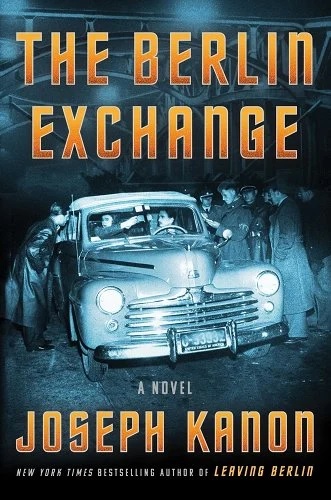 For Joseph Kanon, the Cold War has been fertile ground for a string of taut, powerful thrillers, including The Good German, Leaving Berlin, The Prodigal Spy and more. His latest, The Berlin Exchange, just out from Scribner ($28), is set in 1963 in East Germany, and it's resonating in an unexpected way since Russia's invasion of Ukraine last week. East Germany is where Vladimir Putin was stationed as a KGB officer for much of the 1980s--a time and place that obviously helped shape his dangerous worldview.
For Joseph Kanon, the Cold War has been fertile ground for a string of taut, powerful thrillers, including The Good German, Leaving Berlin, The Prodigal Spy and more. His latest, The Berlin Exchange, just out from Scribner ($28), is set in 1963 in East Germany, and it's resonating in an unexpected way since Russia's invasion of Ukraine last week. East Germany is where Vladimir Putin was stationed as a KGB officer for much of the 1980s--a time and place that obviously helped shape his dangerous worldview.


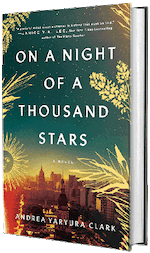


 Shirley Hughes, an award-winning British author of more than 50 children's books, and illustrator of some 200 more, with worldwide sales of more than 11 million, died February 25, the
Shirley Hughes, an award-winning British author of more than 50 children's books, and illustrator of some 200 more, with worldwide sales of more than 11 million, died February 25, the 